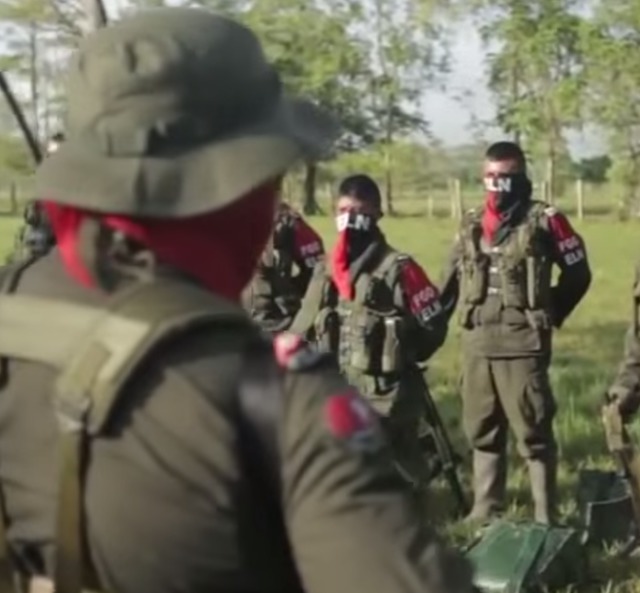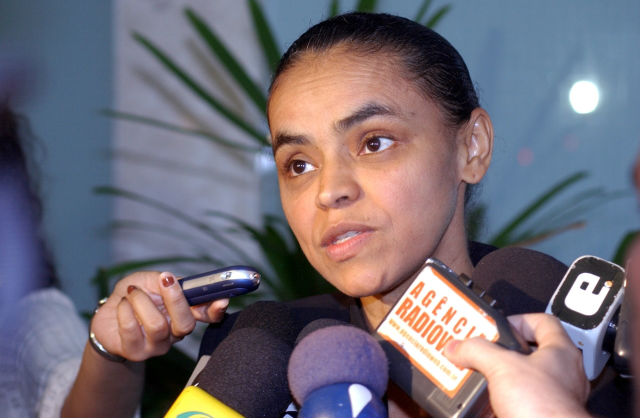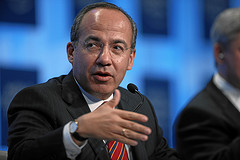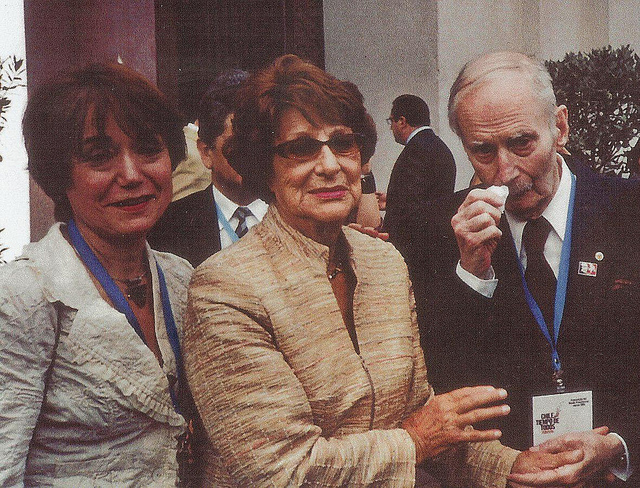
Andes, Colombia, Latin America: Week in Review
Colombia’s ELN Accused of Killing Two Oil Workers
September 16, 2014 By Staff
Top Story — Suspected members of Colombia’s second-largest rebel group have killed two oil workers in a sniper attack, the military said Monday. The workers, contractors with the state-owned Ecopetrol oil company, were allegedly shot by a group of National Liberation Army (ELN) guerrillas in Teorama, a rural municipality in northeastern Norte de Santander department, Reuters reported.
The killings, which reportedly took place as the contractors worked on the Caño Limón Coveñas oil pipeline, came amid an uptick in attacks on oil infrastructure by both the ELN and the larger Revolutionary Armed Forces of Colombia (FARC). Both groups are seeking to show off their military clout despite an aggressive offensive by the Colombian miilitary. These attacks have forced oil production below the government’s target of one million barrels per day.
The administration of President Juan Manuel Santos announced in June that it was negotiating with the ELN to set up a formal peace process. Critics said that announcement, issued just five days before a presidential runoff, was politically motivated. Details of the planned talks remain scarce. Weeks after Santos won re-election, the ELN staged a high-profile attack in Arauca department, injuring 13 oil workers and their family members with homemade explosives.
The government has been holding separate talks with the FARC since 2012 in Havana, Cuba. The parties have reached tentative agreements on three out of six items on the guerrilla group’s agenda.
Headlines from the Western Hemisphere
North America
- The vaquita, an illusive, snub-nosed porpoise that lives in the Gulf of California, is on the verge of complete extinction. According to The New York Times, vaquitas are often caught in nets meant for the totoaba, a giant fish whose swim bladder sells for high rates on the Asian black market.
- Hurricane Odile hit Mexico’s Baja California Peninsula on Sunday night, spurring chaos in the midst of mass evacuations, downed power lines and looting of damaged shops in the popular tourist destination.
- Around 200 unaccompanied minors housed in a federal immigration jail in Texas began classes on Monday as they await potential deportation.
Caribbean
- As rainy season approaches, Haiti has received chikungunya treatment packages for an anticipated rise in new cases of the mosquito-borne virus. This year alone, Haiti has had over 65,000 suspected cases of chikungunya, which was first documented in the Western Hemisphere in late 2013.
- The Dominican Republic has asked the U.S. Drug Enforcement Administration to collaborate on the investigation of a missing plane. Dominican officials are concerned that the small jet is being used for drug trafficking.
- A Puerto Rican businessman has plead guilty to selling thousands of pounds of rotten pork, and could face up to three years in prison.
Central America
- Around 100 activists gathered in front of the World Bank in Washington D.C. to protest gold mining in El Salvador.
- Indigenous associations, labor unions and other political groups in Guatemala have all united under the Convergence for Democratic Revolution. They claim the current political model needs a change to fight high cost of living, unemployment and extreme poverty.
- Panama is selling $1.25 billion in 10-year government bonds to contain the widening deficit and meet budget projection. Bank of America Corp. and Citigroup Inc. are managing the offer.
Andes
- The U.S. State Department released a report to Congress stating that Venezuela and Bolivia have “failed demonstrably” for the third year in a row to meet obligations under international anti-drug treaties.
- Authorities in Colombia are also preparing to deal with the chikungunya virus, which may affect up to 700,000 in Colombia alone after spreading for the first time to South America.
- Peru has a new finance minister: the economist Alfonso Segura, a former official with the IMF as well as Banco de Crédito, Peru’s largest bank.
Southern Cone
- This month, cigarette behemoth Philip Morris International will appear before the World bank to present a $25 million lawsuit against Uruguay, a country that requires 80 percent of tobacco packaging to be covered in graphic images and medical warnings. NPR has an interview with Montevideo-based reporter Alexandra Hall about the lawsuit.
- Chile’s reputation as the least-corrupt country in Latin America could be in jeopardy following allegations of corruption against billionaire Julio Ponce Lerou and the country’s leading stockbroker LarrainVial, reports The Economist.
- Senegalese immigrants entering Brazil through the state of Acre are reportedly declaring their nationality as “Haitian,” due to fears that stigma surrounding the recent Ebola outbreak in West Africa will keep them from entering the country.
- Brazil’s light dims in the global oil and gas industry as restrictive policies and inefficiency drive investors away.
- Brazilian president Dilma Rousseff announced the expansion of a 9 percent tax break currently enjoyed by some industries to all Brazilian companies that export goods or operate abroad. The move is at odds with the government’s left-wing identity and is perceived as a political calculation ahead of the upcoming elections.
- Brazil is building a 325-meter (1,066 foot) tower in an uninhabited area of the Amazon for climate change research, in collaboration with Germany’s Max Planck Institute.
Image: Youtube
Subscribe to Today in Latin America by Email
< Previous Article






3 Comments
[…] here for original […]
[…] https://latindispatch.com/2014/09/16/colombias-eln-accused-of-killing-two-oil-workers/ […]
[…] Colombia’s ELN Accused of Killing Two Oil Workers. […]
Comments are closed.